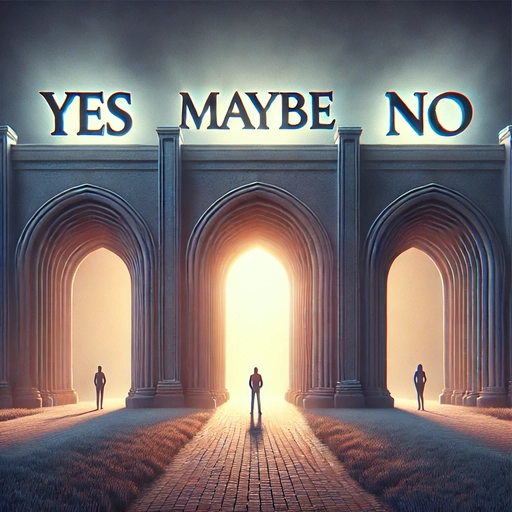Does maybe mean no?
To some people, it does. To others, it doesn’t. Like the scientists turning on the Large Hadron Collider, the chance that something could happen makes me uncomfortable stating things in absolute terms.
When I say yes, I will do my best to achieve the outcome. If I don’t succeed, I feel bad about it—really bad. I may have given up guilt, but failing to keep my word is something I feel guilty about.
When I say maybe, I mean maybe. It’s not a yes; it’s not a no. It’s a maybe, with a preference for yes. I need more information before I can decide. Whether it ends up as a yes or a no depends on the other information.
When I say no, I’ve decided that it’s not a good thing to do, or not possible. I’m still open to persuasion, but I’d like more information or a logical argument.
Some people use yes to indicate they’d like the outcome, but are not necessarily passionate about it. These people say maybe to mean no, are trying to present rejection in a polite way. They would like the issue dropped. The use of no is harsh and confrontational. Maybe-No people respond with Okay when they mean, “I’ll put up with this once, but don’t expect me to do so again.
It takes me a while before I learn that someone is a Maybe-No person, and until that point, confusion and hurt feelings can occur. I’m learning to say, “I’d like that” instead of “Maybe, but I need to be sure other things aren’t already planned for that time” to something that sounds good. I’m learning that okay is not to be used for “it was acceptable, and I’m happy to have it again.“
I realise the English language evolves despite the wishes of some. I don’t expect Maybe-No people to change. I’ll still experience disappointment from someone who says yes but ends up with, “I didn’t bother, but thought you wouldn’t really mind.” Such is life.
Note: Not to be confused with Maybeso, a minor character appearing in Alan Dean Foster’s Flinx series, which I highly recommend.


Leave a Reply